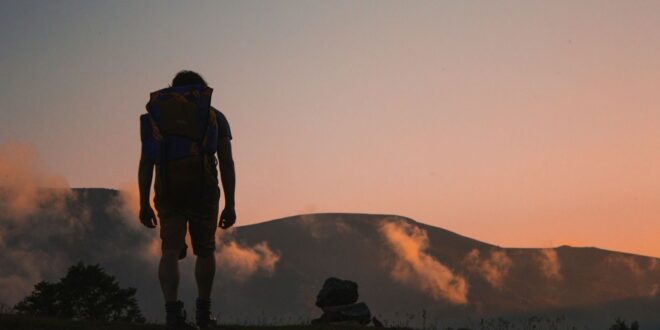A hiker was rescued after getting stranded in the dark trekking down a New Hampshire mountain trail, officials say.
The 56-year-old Dover man was hiking Mt. Major, descending Boulder Loop Trail, when his “headlamp stopped working” on Sunday, March 3, the New Hampshire Fish and Game said in a news release.
The man tried to use the flashlight on his cellphone but soon realised his battery was only at 4%, officials said.
As he was not ready to spend the night on the mountain, officials said he called 911 at around 7pm.
Conservation officers, along with rescuers from Lakes Region Search and Rescue, hiked about 2.5 miles (4km) to reach the man, officials said.
After giving the man a headlamp, officials said they escorted him down the trail and reached his car in a parking area shortly before 11pm.
Boulder Loop Trail, a “moderately challenging” nearly 3-mile loop, is in Alton, about 40 miles northeast of Manchester.
How to be prepared while hiking
If you’re planning to hike, the National Park Service says there are 10 essentials you should take:
Navigation: Pack a map, compass and a GPS system. Make sure you study your route beforehand and understand how to use the tools.
Sun protection: Sunglasses, sunscreen and a hat can help protect your skin and eyes from UV rays.
Insulation: A jacket, hat, gloves, raincoat and thermal underwear can help you be prepared for rapidly changing weather conditions.
Illumination: A flashlight, lantern and headlamp can create light if you get stuck in the dark – and don’t forget to pack extra batteries.
First-aid supplies: It’s a good idea to have a first-aid kit on hand while hiking. Check the expiration date on items before you pack them.
Fire: Matches and a lighter can help start fire to act as an emergency signal in times of need.
Repair kit and tools: Duct tape, a knife, screwdriver and scissors can be helpful if items break during your hike or you need assistance.
Nutrition: You should pack an extra day’s worth of food in case something goes wrong. Park officials recommend having “salty and easy to digest snacks”.
Hydration: You should drink water often and before you feel thirsty if you’re hiking in hot weather. Keeping your body hydrated is “of utmost importance”, park officials said.
Emergency shelter: Packing a tent, space blanket, tarp and bivy can help you be prepared if severe weather breaks out or your plan takes a turn. – The Charlotte Observer/Tribune News Service
 BeritaKini.biz Berita Viral Terkini di Malaysia
BeritaKini.biz Berita Viral Terkini di Malaysia





